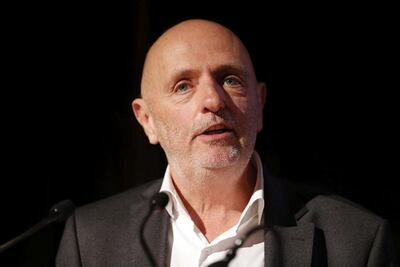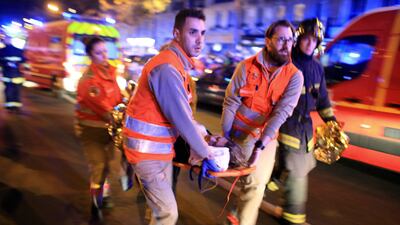A Belgian politician who investigated the suspected mastermind of the 2015 Paris terrorist attacks said mistakes have been repeated that have left youngsters at risk from dangerous radicalisers in their communities.
Belgian-Moroccan citizen Oussama Atar is believed to have been killed by a US drone strike in 2017 and is one of six absent suspects standing trial on Wednesday in Paris accused of involvement in the three hours of bomb and gun attacks in the French capital that left 130 dead.
Georges Dallemagne, a Belgian MP who lived 400 metres from Atar and investigated his terrorist roots, found that he had been first radicalised by a group of charismatic preachers and fighters who had returned from Afghanistan.
“It’s still going on in Brussels and it’s still a threat for the future,” said Mr Dallemagne. “It’s something we don’t confront enough.”

Atar was arrested in Iraq in 2005 and served time in US and Iraqi custody before being released and returned to Belgium in 2012.
Despite authorities imposing tight controls on his movements and an apparent attempt to recruit him as an informant and “honeypot” for other would-be terrorists, Atar was able to leave the country to travel to Syria.
Mr Dallemagne and prosecutors believe he played a key role in arranging the attacks in France in 2015 and months later on the subway and airport in Brussels, which left 32 people dead.
His apparent death in the US drone strike has lessened his significance before the start of the months-long trial in Paris, where he is the only person charged with leadership of a terrorist group.
The focus has been on Salah Abdeslam, the only surviving member of the 10-strong group of attackers, who triggered suicide bombs and opened fire on Parisians at the national football stadium, restaurants and a concert venue.
But unlike Abdeslam, Atar avoided criminal convictions and flew under radar of the authorities as a young man before his deadly intentions played out among the ISIS hierarchy in Syria. Mr Dallemagne says Atar was two rungs above Abdeslam in the chain of command.
Abdelhamid Abaaoud, a childhood friend of Abdeslam, who was shot dead by police days after the Paris attack, was believed to be the co-ordinator of the attacks on the ground. Atar was said to be the key player in Syria where the plot was hatched.
The politician was part of a commission of inquiry into the terrorist attacks in Paris and Brussels — which involved young disaffected Belgian Muslims — and his interest in Atar was piqued because of his single entry in a 1,000-page report, despite his apparent significance.
“It appeared that this guy was one of the first to go to Iraq, supposedly to fight for Al Qaeda in 2004/2005,” he said. “At the time most people thought he was just an eccentric guy who crossed the border without the appropriate papers.
“I was also approached by someone in Belgium for help to get him freed. I didn’t feel he was so innocent as it was presented.”
Senior intelligence officials spoke to him in jail in Iraq in 2006 with the intention of recruiting him as an infiltrator of Islamist groups in Belgium, said Mr Dallamagne, who has written a book about “the brain behind the Paris and Brussels attack”.
But the politician said that Atar had already been in contact with the senior ISIS hierarchy in prison before his return to Belgium.
“It could be that already at that time that he had a mission to come back to Belgium to set up a cell that would become a kind of headquarters in Europe to commit terrorist attacks,” he said.
And while free in Belgium, it emerged that he visited one of his nephews in prison — one of two El Bakraoui brothers who themselves became suicide bombers in the attacks in Brussels in March 2016.
In a message sent to his family, Atar denied all involvement in the Paris and Brussels attacks. But his death has spared the authorities from a number of countries — including France, Belgium and the US — difficult questions about how they failed to share information about Atar, why he was released and how he was able to allegedly mastermind the attacks, said Mr Dallemagne.
“He worked very silently and secretly and nobody know about him,” said Mr Dallemagne. He only ever gave one interview in his life, while in an Iraqi prison. “He was also a cold, brutal fanatic without any emotion.”


